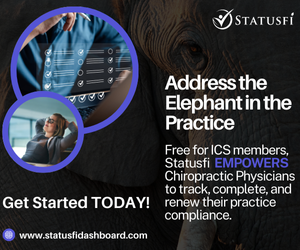
Workers Compensation and Personal Injury: Billing Health Insurance

Many issues have been arising regarding whether to bill health care insurance or Workers’ Compensation/Personal Injury. Most PPO contracts required bill submission to the carrier prior to billing the patient. However, Workers’ Compensation and Personal Injury are the exceptions to this rule.
Workers’ Compensation:
When an employee is injured on the job while performing their duties, they are to report this incident to their supervisor immediately or at least within 45 days – as the Act is currently written. Once a proper report has been made by the employee, then the employer fills a First Report to begin the worker’s compensation process. Your office can now obtain the name and address of the WC carrier with the claim number and submit all needed reports with outcomes assessments, as well as all SOAP notes, for each date of service.
But now what happens if the WC is denied by the WC Carrier and/or the employer? What recourse do you have?
Section 8.2 (e) (5-20) of the Act provides that a provider may seek payment of the actual charges from the employee if the employer notifies a provider that it does not consider the illness or injury to be compensable.
- If a provider is informed that the employee participates in a group health plan, the provider may submit the claim for services to the group plan assuming the filing falls within the timely filing requirements of the insurer and your contract.
- If the services are covered by the plan, the employee’s responsibility is limited to applicable deductibles, co-payments or co-insurance.
Denial Letter
Therefore, provided that the WC is denied, your office should receive a letter of denial. This letter of denial is then attached to the CMS 1500 claim form and submitted to the health insurance carrier for payment. Remember, the information on the CMS 1500 is not changed and must be submitted the same way as submitted to the WC carrier, but with the denial letter attached.
Some carriers maintain a department for denied WC claims and must receive the appropriate denial letter for consideration of payment based on contract agreement(s) with each CMS 1500 claim form submitted. Therefore, if approved and payment is received from the insurer, your office can balance bill for the deductable and copay only.
However, some self-funded plans will reject any claim that has been denied under workers compensation. Therefore, the patient will be responsible for all services rendered and can be balanced billed.
Lastly, if the patient has elected to obtain legal counsel and their WC has been denied, then your office has the option of waiting for the settlement of the case for payment. Once legal counsel is in play, expect the case to be in front of the Illinois Workers Compensation Commission. Therefore, your office cannot balance bill while the case is at the commission but can send reminders of the outstanding bill. Once the case is complete at the Workers Compensation Commission, providers may balance bill the patient.
Personal Injury:
If the patient presents with a motor vehicular crash (MVC) injury, the patient should provide the office with an Illinois Motorist Report as provided by the Law Enforcement Officer. This form will indicate both the defendant’s and the patient’s demographics and insurance information. Illinois State Police will provide a computer-generated form that is normally found on the “pink” Illinois Motorist Report.
Attorney Liens
If the patient’s personal injury (auto) insurance plan has MedPay, then you should consider billing the MedPay for the services rendered provided that the patient files a MedPay claim. When the patient indicates they have retained legal representation, make sure that their attorney does not place an Attorney Lien on the MedPay. Attorney Lien will hold any release of the MedPay which may result in the MedPay proceeds being considered a part of the settlement. In these cases, providers can attempt to contact the attorney and request that they release their Attorney Lien in order for your office to receive payment.
If the patient has exhausted the MedPay due to a low policy limit or because bills from other providers and professionals exhausted the policy limits, then the balance will come from the settlement of the case. But, is there a way to collect more?
Yes. You can bill the patient’s health care insurance for services rendered for the balance due after the MedPay is exhausted or simply for all the services rendered.
PPO Contracts
Most PPO contracts do not allow providers to bill the patient or the patient’s attorney more than the allowed amounts. Providers should collect deductible, copays, and services not covered under the plan (with a patient signed Notice of Non-Covered Service). Therefore, you must decide if your office is willing to accept the contractual agreement of payment. If not, do not bill health insurance, and instead wait for settlement. Additionally, you may have the patient pay your office for the services rendered and have them wait for settlement.
Let me stress this, it is imperative that your patient has full disclosure of your office policies regarding usage of their health care insurance card, balance billing (if any), and patient payments. This will avoid any misunderstanding in the future, especially when the settlement is realized.
Dr. CM Boileve is a Certified Medical Compliance Specialist and a Certified Insurance Consultant/Reviewer. He also continues to mentor ICS members on Workers’ Compensation and Personal Injury matters. He is available to assist ICS members with their questions and compliance needs.



















